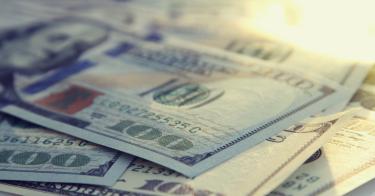Why should the government have a monopoly on money?
Economists widely acknowledge that consumers benefit when private producers compete for their business. Rarely can a government office produce goods or services more cheaply or efficiently than its private sector competitors can.
Consider the U.S. Postal Service. It fails miserably against UPS and FedEx. It’s not even close.
Competition delivers the best products and services at the lowest possible price. Ultimately, this improves people’s lives because the competitive process exposes weaknesses and inefficiencies in existing products.
Is money one of those rare cases where people are clearly better off with a single government producer?
Private markets certainly can produce money. In fact, banks produced their own paper money for years, both before and after the Treasury Department started issuing currency in 1862. Government authorities typically monopolize money only after it has been developed nicely in private markets. (It’s a great way to raise revenue.)
Governments have a long history of debasing coins and driving preferred currencies out of business, frequently to pay for wars. Governments, not private markets, have posed the biggest threat to the value of money throughout history.
This makes it hard to justify government monopoly based on some kind of benevolent motive.
In more recent times, critics claim that a government monopoly is necessary to stabilize the economy.
Putting aside the question of whether the federal government should be in the business of trying to stabilize the economy, it has clearly failed to do so. Much of the evidence suggesting that U.S. monetary policy has stabilized the economy relies on a faulty comparison of pre-Fed data to only a portion of the post-World War II period.
A comparison to the entire Federal Reserve period, on the other hand, suggests that the frequency and severity of recessions has not decreased. Some macroeconomic measures even show that there is more economic volatility compared to the pre-Fed period.
Updated data — many of the pre-war aggregates were created before more modern statistical techniques were developed — suggest that economic contractions were shorter, and recoveries were faster, in the pre-Fed era than previously believed. The oft-reported decline in post-WWII volatility in both output and employment also appears to be largely a figment of flawed data.
The government’s track record on inflation after it monopolized money isn’t much better.
Compared to the full pre-Federal Reserve era, the variability in inflation has dropped by about 1 percentage point. However, the average rate of inflation went from less than 0.5 percent to more than 3 percent. Was the tradeoff really worth it?
The same sort of tradeoff occurred after the Fed received a formal price-stability mandate in 1977: Variability in inflation went down, but the average rate of inflation actually increased. The average inflation rate was almost 4 percent during this period, even higher than its long-term average.
Despite good reason to question the federal government’s stewardship of money, an increasing number of policymakers want to further solidify the government’s control over money by banning the use of paper currency.
Under this framework, in the name of boosting the economy, the government could threaten to take money out of people’s accounts if they don’t spend “enough” money. With no opportunity to convert electronic balances into cash, people would have no way to avoid the government’s stabilization policies.
Doubters will say that money is too important to let anyone other than the government produce it, but this critique has it backwards: Money is far too important to blindly turn over its production to the government.
Given the widespread acceptance of U.S. currency, there’s certainly no reason to force the government out of the money business. However, people in a free society should be able to contract for payment in whatever type of money they desire.
As long as the government is a moderately good steward, few people will want anything but the U.S. dollar.
This piece originally appeared in Washington Times



